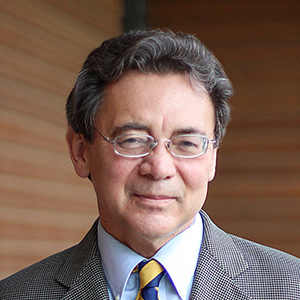Throughout American history, employers looking for a competitive advantage have exploited immigrants. Violation of the legal rights of foreign workers, especially undocumented immigrants, unfortunately remains commonplace today.
Kevin R. Johnson is dean of the University of California–Davis School of Law and Mabie-Apallas Professor of Public Interest Law and Chicana/o Studies.

Congress and state and local governments have spent billions more on immigration enforcement than on ensuring compliance with wage and other protections for foreign workers. Congress, in fact, has failed for more than a decade to pass comprehensive immigration reform, leaving 11–12 million undocumented immigrants in the United States especially vulnerable in the workplace due to their uncertain immigration status. Rather than take steps to protect those workers, many state and local governments have passed laws devoting limited resources to assisting the federal government with immigration enforcement.
With government failing to adequately enforce the labor laws, employers have an incentive to substitute lower-paid undocumented immigrants for citizen and lawful immigrant workers. That in turn increases the demand for undocumented labor and, consequently, the incentive for foreign workers to unlawfully emigrate to the U.S.
In times of economic distress, immigrant workers historically have been blamed for the bad fortunes of “American workers.” In the late 19th century, for example, Chinese workers who built the transcontinental railroad were subject to widespread discrimination and served as convenient scapegoats when the nation experienced a severe economic downturn. Congress added insult to injury with the infamous “Chinese exclusion laws” severely restricting immigration from China (and later, as expanded, to all of Asia).
Today, too, foreign workers regularly are blamed for the difficulties facing working Americans. Consider that Senator Jeff Sessions, the Alabama Republican, frequently criticizes immigrants for undercutting the wages of U.S. workers and taking American jobs. On that basis, he vigorously champions greater restrictions on immigration and increased border enforcement and staunchly opposes comprehensive immigration reform.
The vast majority of contemporary immigrants to the U.S. are people of color from developing nations. Their race clearly shapes the political responses to immigrants. In the rapid rise in deportations during the early years of the Obama administration and the onset of the Great Recession, close to 95 percent of the people removed from the U.S. were natives of Mexico and Central America.
The future of all workers in the U.S. depends in no small part on how employers, government, and society as a whole respond to foreign workers. So long as the American economy grows, there will be continuing demand for labor from other nations. With fertility rates declining in Mexico, fewer of its citizens will look to the U.S. for jobs. Labor will more likely come from other developing nations populated predominantly by people of color.
Improving the enforcement of wage and other labor protections for immigrant workers historically has proven to be easier said than done. Employers benefit from the disparity in wages between foreign and domestic labor. To simply enforce wage and labor protections in one sector of the economy—agriculture, which is known for reliance on foreign labor—itself represents an incredible challenge, much less in restaurants, hotels, and construction sites.
Absent a true commitment to the enforcement of protections for all workers, we as a nation can expect that immigrant labor will continue to be exploited. Domestic workers will suffer as employers prefer hiring less expensive foreign over domestic workers. After generations of combating Jim Crow in the workplace, the American labor market sadly will continue to resemble a racial caste system.

For the Future of Work, a special project from the Center for Advanced Study in the Behavioral Sciences at Stanford University, business and labor leaders, social scientists, technology visionaries, activists, and journalists weigh in on the most consequential changes in the workplace, and what anxieties and possibilities they might produce.





